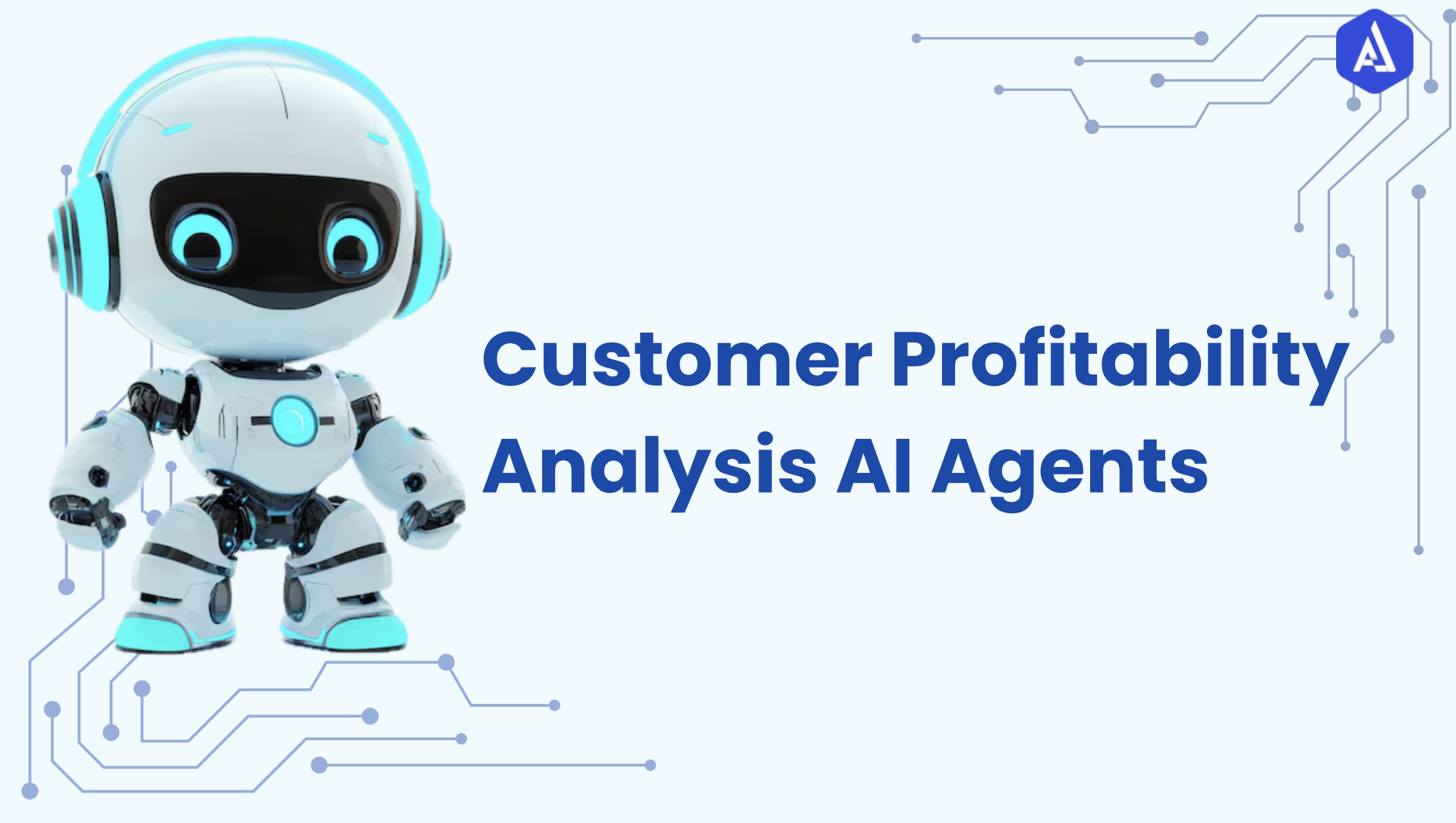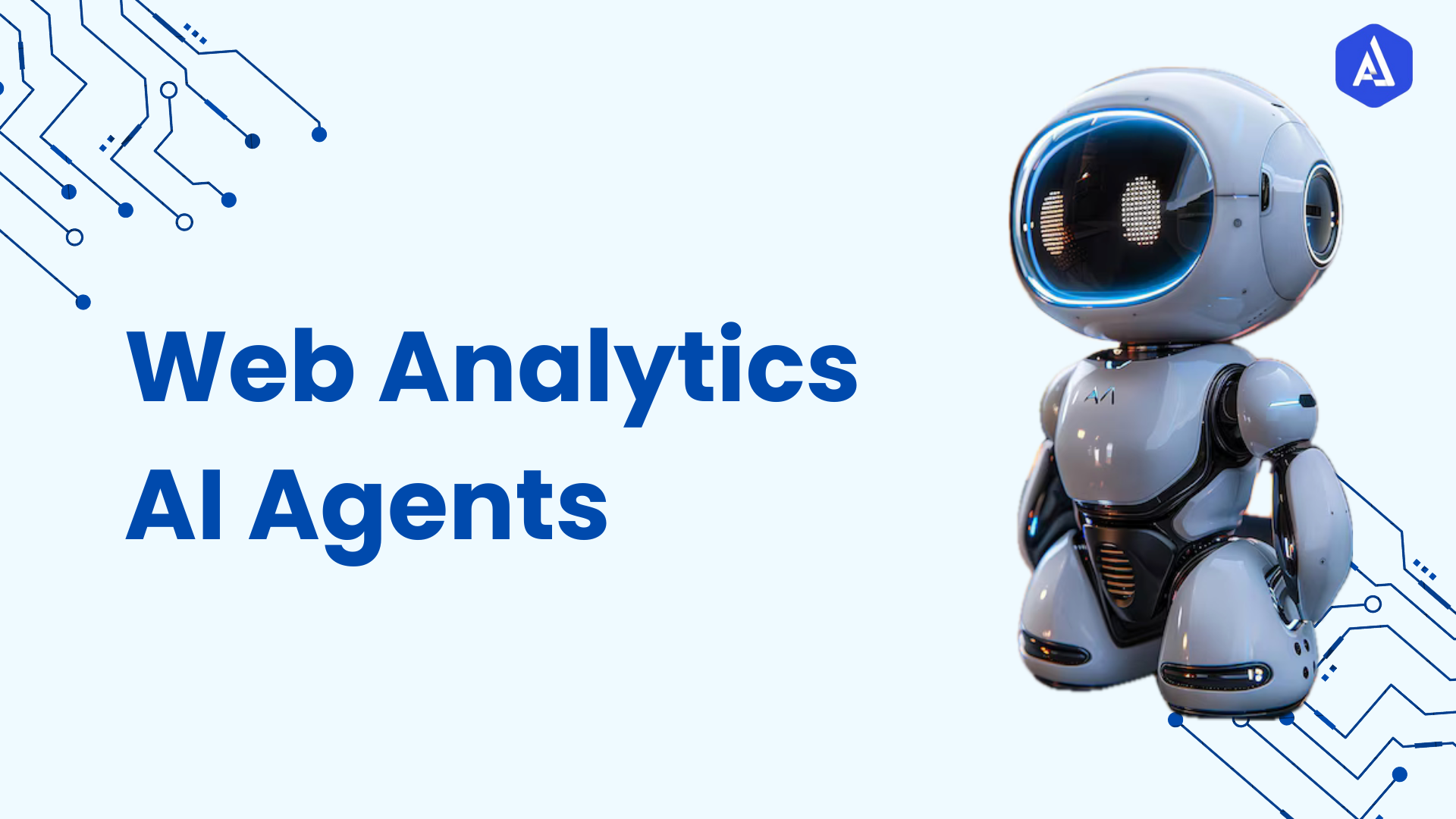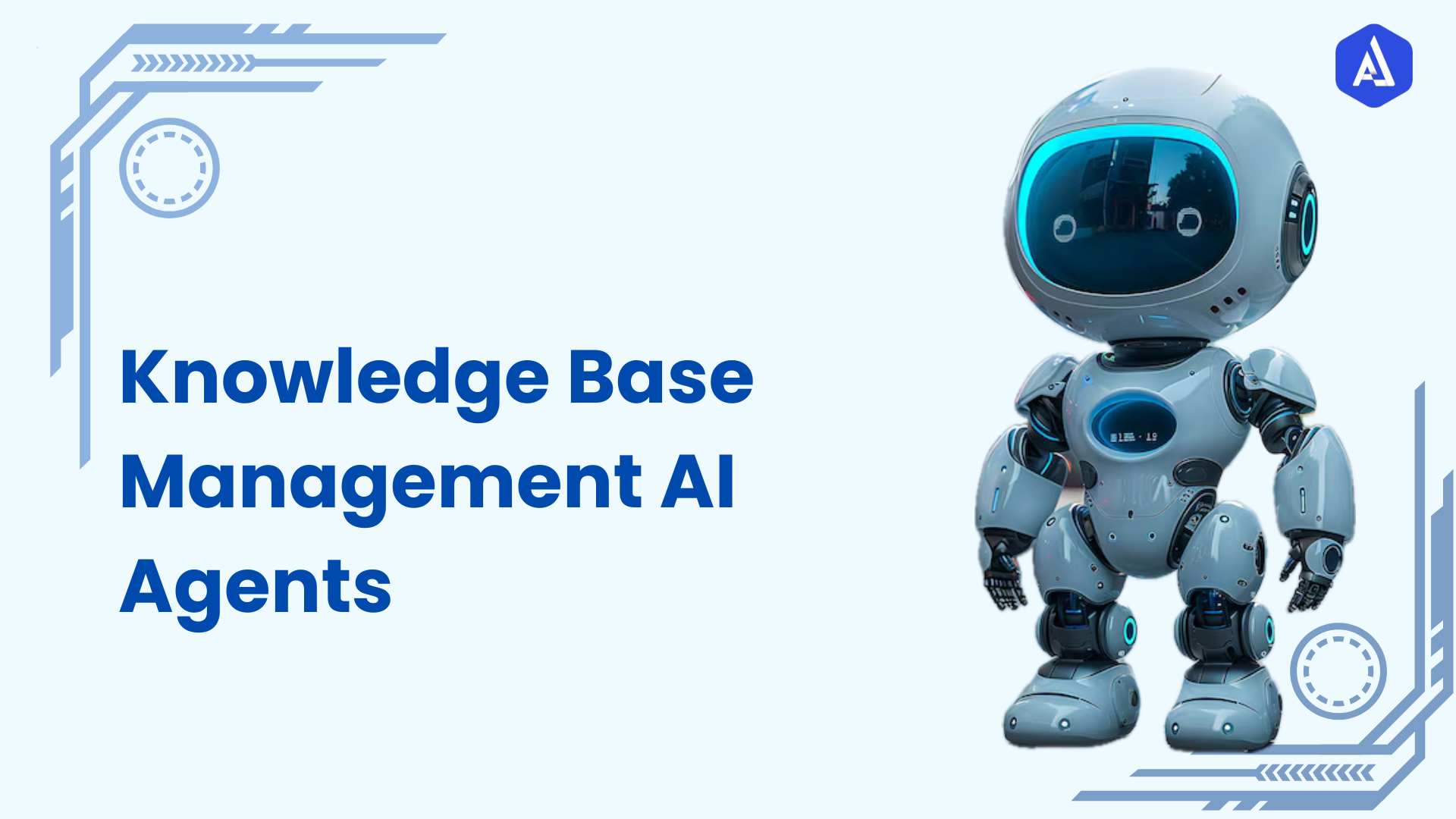Introduction
The role of a Marketing Data Analyst is critical to the success of data-driven marketing strategies. With growing volumes of data and increasingly complex customer behaviour patterns, AI-powered Marketing Data Analyst Agents can alleviate the challenges of manual data analysis, automated decision-making processes, and provide real-time insights that empower marketers to make faster, more informed decisions.
Role: Marketing Data Analyst
A Marketing Data Analyst collects, processes, and analyses marketing data to inform strategy and optimize campaigns. Their primary tasks include tracking campaign performance, identifying trends, segmenting audiences, and measuring key performance indicators (KPIs). However, the role comes with several challenges:
-
Data Overload: Marketers often have to sift through vast amounts of data, making it difficult to extract actionable insights.
-
Manual Analysis: Many data analysis processes are still performed manually, requiring substantial time and effort.
-
Predicting Trends: Understanding shifting customer behaviours and market trends can be difficult without the right tools.
-
Real-Time Reporting: Continuous monitoring and quick adjustments to marketing campaigns require real-time data processing, which can be time-consuming without automation.
These challenges can be alleviated with the use of AI-powered Marketing Data Analyst Agents. These agents automate data collection, provide predictive insights, and offer real-time reporting, allowing marketing teams to focus on strategic decision-making rather than manual analysis.
About the Agent
The Marketing Data Analyst AI Agent is designed to streamline and automate the data analysis process for marketing teams. By leveraging machine learning and predictive analytics, the agent empowers users with actionable insights that are immediately useful for refining marketing strategies. It complements existing marketing software by enhancing its capabilities with automated reporting, real-time data processing, and deep analytical insights.
-
Design: The agent is designed with an intuitive interface and can be easily integrated with existing marketing tools such as CRM systems, social media platforms, and Google Analytics.
-
Functionality: The agent utilizes AI to process large volumes of data from multiple sources, automatically generating reports, identifying trends, and suggesting optimization strategies.
-
Complementing Existing Tools: It enhances traditional marketing analytics by automating the routine tasks of data collection and analysis, allowing marketers to focus on strategic decisions.
Key Features of the Agent
-
Automated Data Collection: The AI agent collects data from a wide range of marketing channels—social media, websites, email campaigns, and more. It then aggregates, cleans, and organizes this data for seamless analysis.
-
Predictive Analytics: Using historical data, the agent predicts customer behaviour and future marketing trends. This allows marketers to optimize campaigns before they even launch, reducing guesswork.
-
Real-Time Reporting: The agent provides up-to-date reporting on campaign performance, website traffic, and customer interactions, allowing marketers to make timely adjustments to ongoing campaigns.
-
Sentiment Analysis: Through Natural Language Processing (NLP), the agent analyzes social media mentions, customer reviews, and other text data to gauge public sentiment around products or campaigns, offering real-time feedback on brand perception.
-
Customer Segmentation: The agent segments audiences based on behaviours, preferences, and demographics, allowing for highly targeted campaigns. This improves engagement by delivering personalized content.
-
Campaign Optimization: The agent identifies underperforming aspects of marketing campaigns (such as messaging, timing, or targeting) and recommends adjustments, ensuring that campaigns are continuously optimized for better performance.
-
A/B Testing Automation: The AI agent can automatically run A/B tests on marketing campaigns, emails, or advertisements, providing insights into which versions of creative elements perform best.
Use Cases
The Marketing Data Analyst AI Agent can be deployed across various industries and marketing scenarios, helping businesses of all sizes improve efficiency and optimize campaigns. Some of the key use cases include:
-
Campaign Performance Monitoring: A marketing team uses the AI agent to track the performance of a product launch across multiple channels, adjusting tactics in real-time based on insights about customer engagement and conversions.
-
Customer Sentiment Analysis: The agent scans social media platforms, customer reviews, and online forums to gauge public sentiment about a brand. By analyzing customer feedback in real time, it allows marketing teams to react to negative sentiment quickly or capitalize on positive trends.
-
Predictive Customer Behavior: A retailer uses the AI agent to predict future buying behaviours based on customer interactions, such as website visits, purchase history, and email engagement. The agent helps marketers design personalized offers that increase the likelihood of conversion.
-
Optimizing Multi-Channel Campaigns: An e-commerce company integrates the AI agent with its CRM and email marketing platforms to monitor the performance of campaigns running on multiple channels. The agent provides real-time insights on which channel is driving the most sales and adjusts budget allocation accordingly.
-
Lead Scoring and Segmentation: A SaaS company uses the AI agent to segment leads based on behaviour, such as email clicks or website interactions. The agent automatically scores leads to prioritize those most likely to convert, helping sales and marketing teams target the right audience.
Considerations
While AI-powered Marketing Data Analyst Agents offer significant benefits, there are several potential challenges to consider before implementation:
-
Data Privacy and Security: AI agents handle large volumes of data, including sensitive customer information. Marketers must ensure that AI tools comply with data protection regulations such as GDPR to maintain customer trust and avoid legal issues.
-
Integration with Existing Systems: Integrating the AI agent into existing marketing platforms may require technical expertise, particularly if the company uses legacy systems or has complex data infrastructure.
-
Data Quality: AI tools rely heavily on clean, structured data to generate accurate insights. Poor data quality, such as incomplete or outdated information, can compromise the effectiveness of the agent.
-
Cost of Implementation: Although the ROI is significant, there may be upfront costs associated with implementing AI tools, including purchasing software, integration services, and training staff.
-
Dependence on AI: While AI can assist with analysis, marketers should maintain oversight to ensure the recommendations align with broader business objectives. Over-reliance on AI could lead to missed human creativity and strategic thinking opportunities.
Benefits and Values
-
Increased Efficiency: Automating data collection, processing, and analysis saves marketers significant time, allowing them to focus on strategy, creativity, and high-level decision-making.
-
Faster Decision-Making: Real-time insights and predictive analytics empower marketing teams to make quick, data-driven decisions, adapting to changes in customer behavior and market conditions faster than ever before.
-
Improved ROI: The AI agent helps maximize the return on marketing investments by continuously optimizing campaigns, reducing manual work, and identifying high-value targets.
-
Better Targeting and Personalization: The agent’s segmentation and predictive capabilities ensure that marketing campaigns are tailored to the right audience, leading to higher engagement and conversion rates.
-
Cost Reduction: By automating routine tasks such as reporting, analysis, and A/B testing, the agent reduces operational costs and increases the overall efficiency of the marketing team.
-
Scalability: The AI agent can scale with the business, handling growing amounts of data and more complex marketing campaigns without requiring additional resources.
Usability
To fully leverage the capabilities of the Marketing Data Analyst AI Agent, follow these steps for setup, usage, and troubleshooting:
Setup and Integration:
-
Integrate the AI agent with existing marketing tools like CRM, email marketing platforms, and social media dashboards. Ensure all data sources are connected to provide comprehensive insights.
-
Define key performance indicators (KPIs) and set up the agent to monitor these metrics, including customer acquisition cost, conversion rate, return on investment (ROI), and more.
Daily Operations:
-
The AI agent will automatically collect data from all connected platforms. Marketers can access real-time reports through a user-friendly dashboard.
-
The agent provides actionable insights into campaign performance, customer segmentation, and potential improvements. Marketers can use these insights to adjust campaigns in real time.
Reporting and Optimization:
-
Use the AI agent’s advanced reporting features to monitor key metrics like campaign performance, website traffic, and lead quality. The agent will automatically identify areas for improvement and suggest optimizations.
Troubleshooting and Adjustments:
-
If the AI agent flags an issue (e.g., an unexpected drop in engagement or poor lead scoring), investigate the underlying cause using the agent's in-depth analysis. Adjust your campaigns and retest them to measure the impact of changes.


